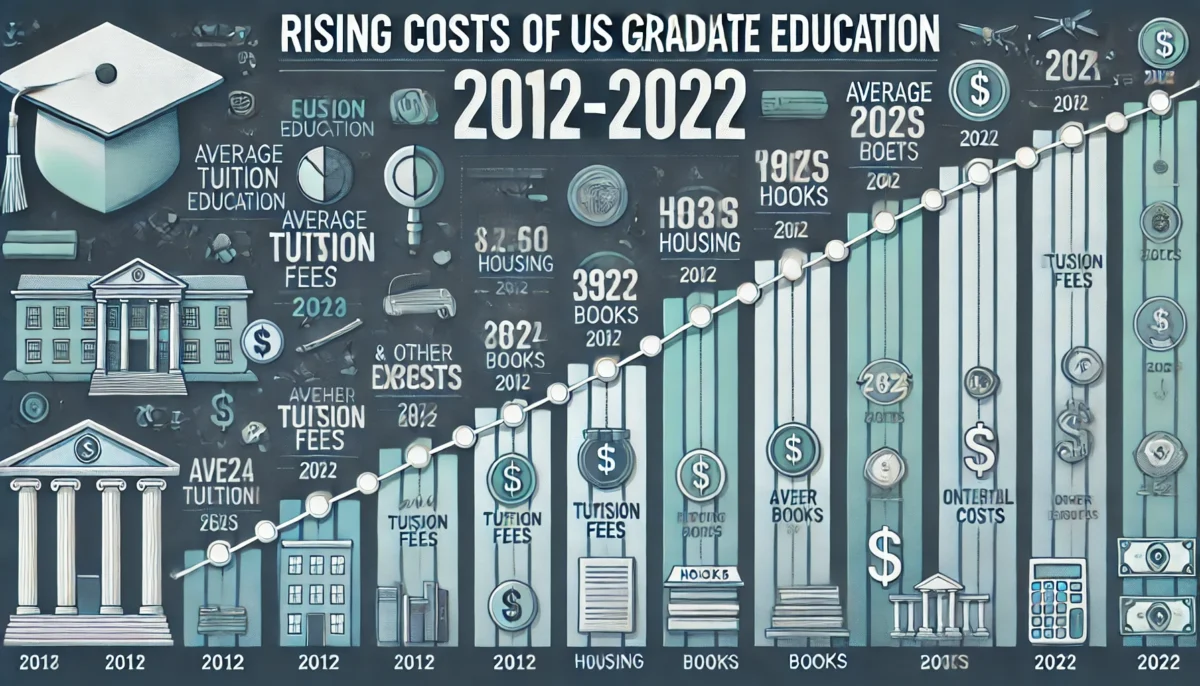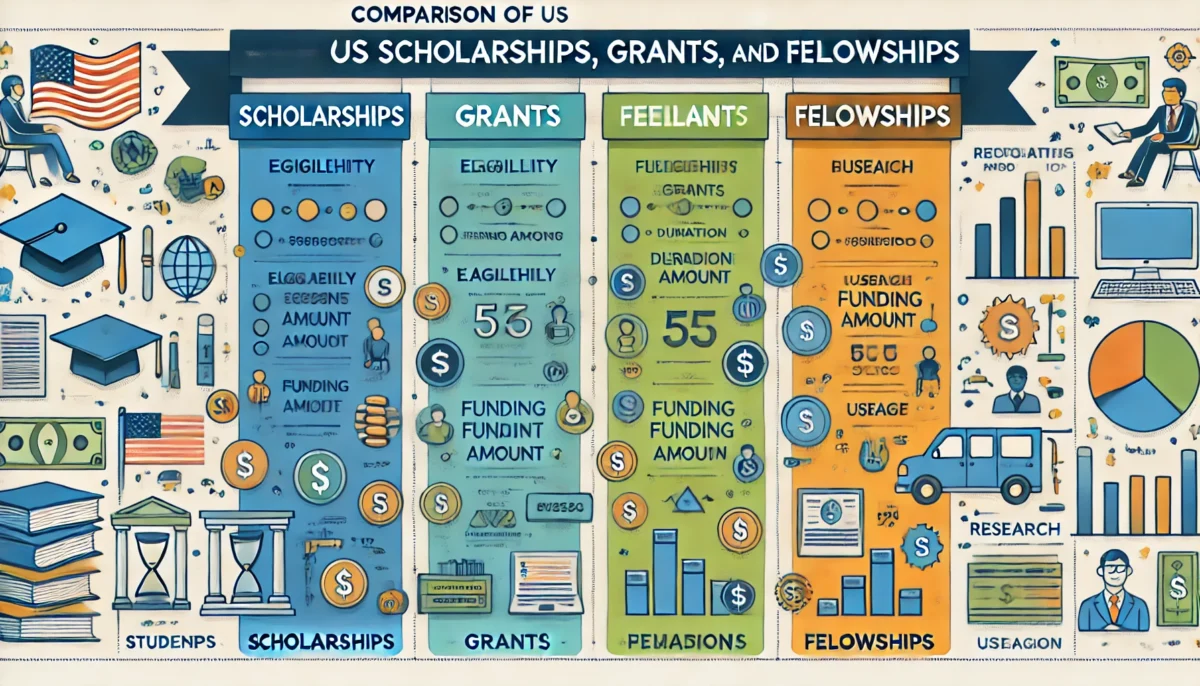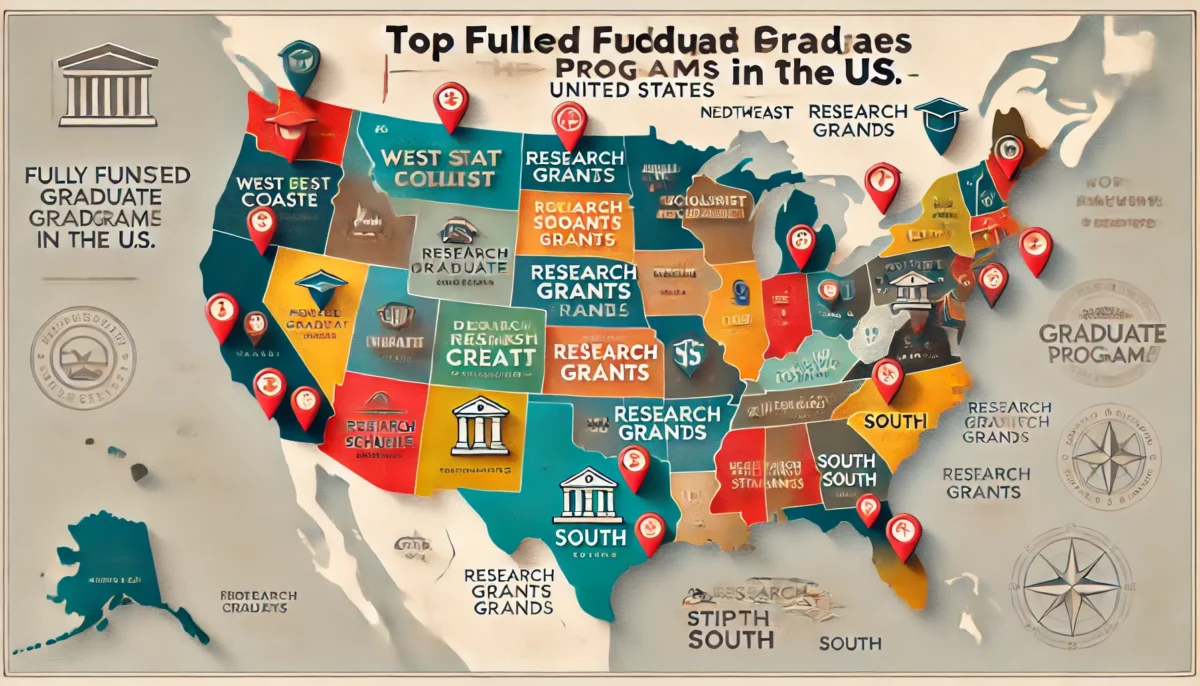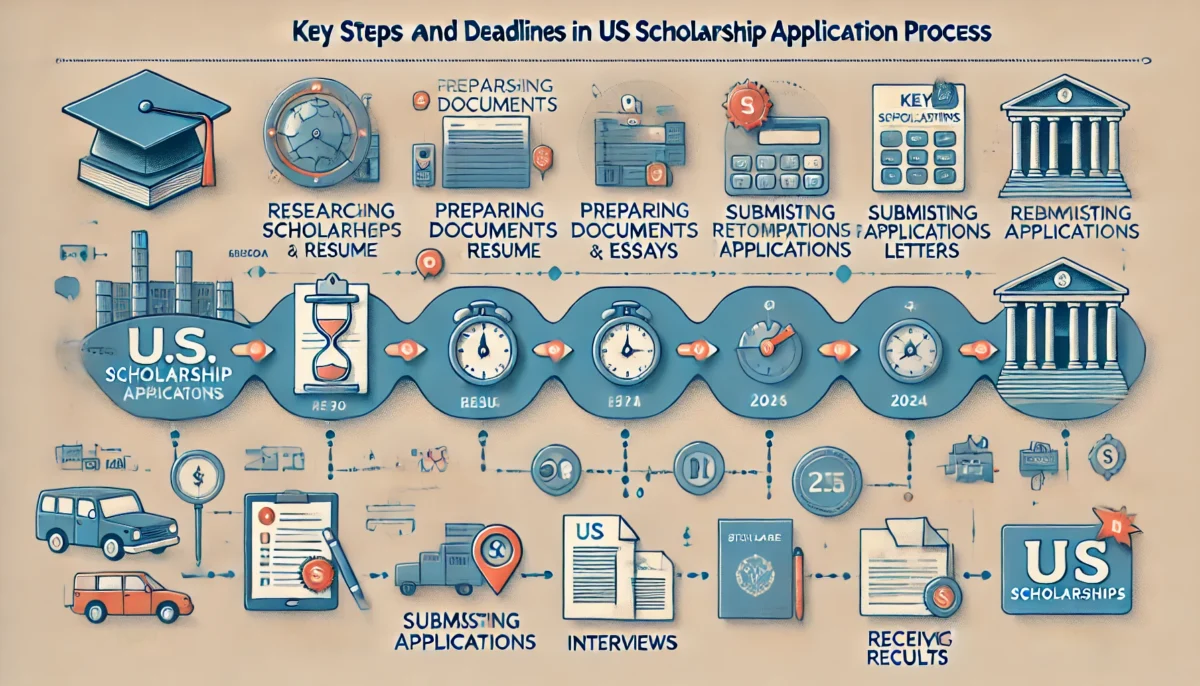In the ever-evolving landscape of American higher education, US graduate degree scholarships have emerged as a beacon of hope for aspiring scholars. As the cost of advanced degrees in the United States continues to skyrocket, these financial lifelines are transforming dreams into reality for thousands of students each year. From bustling Ivy League campuses to cutting-edge research institutions, scholarships are opening doors to world-class education that might otherwise remain closed.
The impact of these scholarships extends far beyond individual students. They fuel innovation, drive economic growth, and shape the future of industries across the nation. For international students, these opportunities represent a gateway to the American academic experience, fostering global collaboration and cultural exchange. Meanwhile, for US citizens, especially those from underrepresented backgrounds, scholarships are leveling the playing field and diversifying the next generation of American leaders and innovators.
As we delve into the world of US graduate scholarships, we’ll explore how these financial awards are not just alleviating the burden of student debt but also nurturing talent, advancing research, and shaping the future of academia in America. Whether you’re a recent graduate, a mid-career professional, or an international student eyeing the American dream, understanding the landscape of graduate scholarships in the US is your first step toward achieving your academic aspirations.
Join us as we navigate the complex yet rewarding world of graduate degree scholarships in the United States, uncovering opportunities that could change the trajectory of your academic and professional journey.
CHECK: Ultimate Student Loans Guide: 7 Key Insights for Success
The Rising Costs of US Graduate Education
According to the National Center for Education Statistics, the average annual tuition for graduate programs in the United States reached $19,792 for public institutions and $42,268 for private institutions in the 2021-2022 academic year. With such high costs, it’s no wonder that the average graduate student debt in the US stood at $84,300 in 2023, as reported by the Education Data Initiative.

Understanding US Graduate Degree Scholarships
Graduate degree scholarships in the US are financial awards designed to support students pursuing advanced degrees beyond the bachelor’s level. Unlike loans, these scholarships typically don’t require repayment, allowing recipients to focus on their studies and research without the burden of additional debt.
Key Differences: Scholarships, Grants, and Fellowships in the US
- Scholarships: Usually merit-based and can be one-time or renewable awards.
- Grants: Often need-based and may have specific use requirements. In the US, the Free Application for Federal Student Aid (FAFSA) is crucial for grant eligibility.
- Fellowships: Typically merit-based and often include work or research components and comprehensive support.

Types of US Graduate Scholarships
MBA Scholarships
MBA scholarships are highly competitive in the US due to the popularity of business administration programs. Some notable options include:
- Full-ride MBA programs at top US business schools
- Veteran MBA scholarships for US military personnel
- MBA finance scholarships from major US financial institutions
According to the Graduate Management Admission Council, 56% of full-time MBA programs in the US reported an increase in application volume in 2021, highlighting the growing demand for MBA scholarships.
Master’s Scholarships
Scholarships for master’s degrees in the US cover a wide range of fields and can include:
- Scholarships for Master’s in Social Work at universities like Columbia and UC Berkeley
- Public Health Masters scholarships from the American Public Health Association
- Master in Psychology scholarships offered by the American Psychological Association
PhD Scholarships
Doctoral students in the US can find various funding opportunities, including:
- Fully funded PhD in Business Administration at Harvard Business School
- PhD in Psychology scholarships from the National Science Foundation
- Minority scholarships for PhD students offered by the Ford Foundation
The National Science Foundation (NSF) Graduate Research Fellowship Program is one of the most prestigious funding sources for PhD students in the US, offering an annual stipend of $37,000 and a $12,000 cost of education allowance.
Fully Funded Graduate Programs in the US
Many US universities offer fully funded programs that cover tuition and often provide a stipend for living expenses. Examples include:
- Fully funded Masters in Social Work at the University of Michigan
- Fully funded Masters in Psychology at Stanford University
- Fully funded PhD in Computer Science at MIT

Online Degree Scholarships
As online education grows in the US, so do scholarship opportunities for distance learners:
- Online MBA scholarships from schools like Indiana University’s Kelley School of Business
- Online Masters scholarships offered by Southern New Hampshire University
- Scholarships for online Master’s programs at Arizona State University
A 2021 survey by BestColleges found that 95% of US students who enrolled in online programs during the COVID-19 pandemic plan to continue with online education, indicating a growing need for online degree scholarships.
Field-Specific Scholarships in the US
Many scholarships target students in particular academic disciplines:
- Masters in Education grants from the US Department of Education
- Cybersecurity Master scholarships from the National Security Agency
- Master in Public Policy scholarships from the Truman Scholarship Foundation
International Student Scholarships for US Programs
Numerous opportunities exist for international students pursuing graduate degrees in the US:
- Fulbright Foreign Student Program for international students studying in the US
- AAUW International Fellowships for women pursuing graduate or postgraduate studies in the US
- Humphrey Fellowship Program for mid-career professionals from designated countries
The Fulbright Foreign Student Program awards approximately 4,000 scholarships annually for international students to study in the United States.
US Government Grants for Master’s Degrees
US government agencies offer various grants for graduate students:
- TEACH Grant for students pursuing teaching careers in high-need fields
- GI Bill benefits for US military veterans pursuing graduate education
- National Institutes of Health (NIH) grants for biomedical and health-related research
The Teacher Education Assistance for College and Higher Education (TEACH) Grant provides up to $4,000 per year to students who intend to teach in a high-need field in a low-income area within the US.
Graduate Scholarships for US Veterans
Many programs support US veterans pursuing advanced degrees:
- Yellow Ribbon Program, a provision of the Post-9/11 GI Bill
- Tillman Scholars Program for active-duty service members, veterans, and military spouses
- VFW’s “Sport Clips Help A Hero Scholarship” for service members and veterans
The Yellow Ribbon Program can help veterans attend private colleges or out-of-state public schools in the US at little to no cost.
How to Apply for Graduate Scholarships in the US
- Start early: Begin your search at least a year before your program starts
- Complete the FAFSA: Essential for federal aid and many institutional scholarships
- Research thoroughly: Use scholarship databases and check with your prospective US schools
- Prepare strong applications: Craft compelling essays and secure strong recommendations
- Meet all deadlines: Use a calendar to track application due dates
- Apply widely: Don’t limit yourself to just a few opportunities

US Tax Implications of Scholarships
It’s important to understand the tax implications of scholarships in the US:
- Qualified scholarships used for tuition and required fees are generally tax-free
- Stipends or funds used for living expenses are typically taxable
- International students may be subject to different tax rules depending on their country of origin and visa status
Consult with a tax professional or your university’s financial aid office for personalized advice.
Visa Considerations for International Students
International students pursuing scholarships in the US should be aware of visa requirements:
- Most international students will need an F-1 visa for full-time study
- Scholarships may affect visa eligibility, so consult with the US embassy or consulate in your home country
- Maintain full-time enrollment to keep your student visa status
Additional Resources
- Federal Student Aid
- Council of Graduate Schools
- Peterson’s Scholarship Search
- ProFellow
- US News & World Report – Graduate School Rankings
